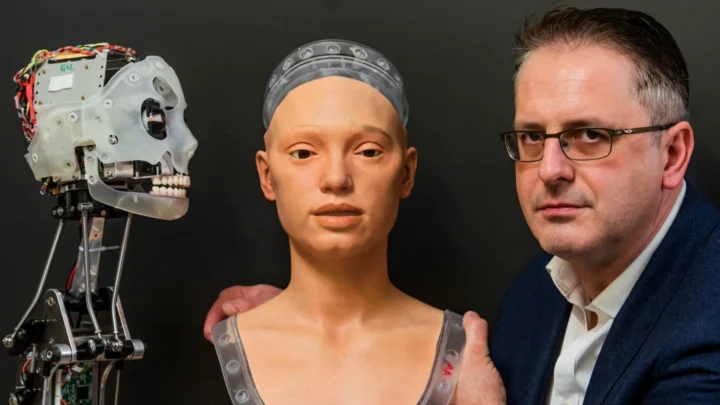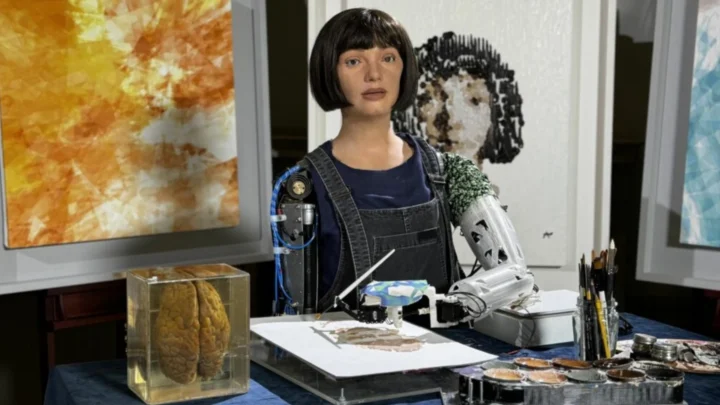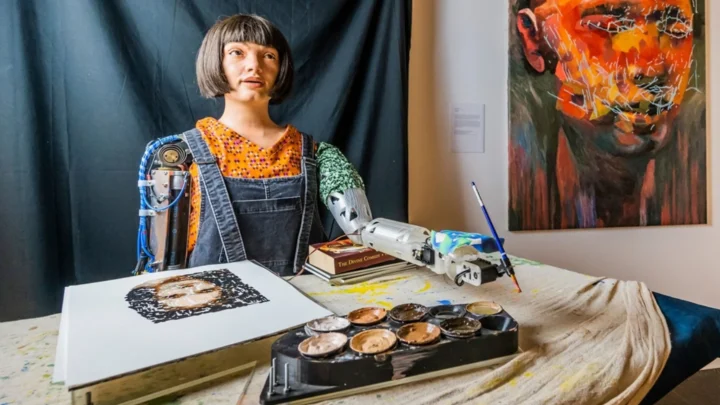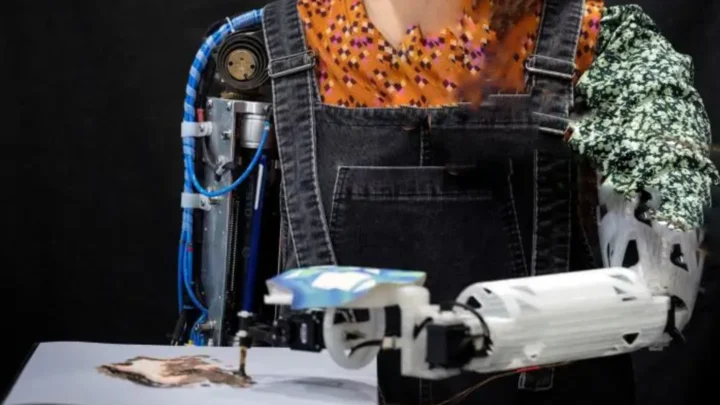Artificial intelligence is beginning to invade the world of artistic creation in force. A robot named Ai-Da created a portrait of famous British mathematician Alan Turing and Sotheby’s put it up for auction. It made more than a million dollars.
Revolution in the world of art with the help of artificial intelligence
We are talking about a work of art created by a humanoid robot, called Ai-Da, who was sold at auction for over a million dollarsestablishing a new paradigm in the world of fine arts.
The work in question is a portrait of the famous British mathematician Alan Turing, known for his pioneering work in computing and cryptography during the Second World War. This is the first portrait of Turing created by a humanoid robot and, at the same time, the first work of its kind to reach such a price at auction.
Ai-Da is one of the most advanced robots in the world. Developed by a team of engineers, scientists and art experts, Ai-Da has a realistic physical appearance and is capable of creating art using artificial intelligence.

Through cameras embedded in the eyes and computer vision algorithmsyou can "see" what is in front of you, process the images and interpret them artistically.
Furthermore, it has been programmed with learning algorithms that allow it to analyze and replicate painting styles, draw complex shapes and even develop a unique approach to artistic creation.
This cutting-edge technology is what allows Ai-Da to operate relatively independently and produce works of art that pique the curiosity and fascination of collectors and art critics.

A obra "A.I. God"
The portrait of Alan Turing, titled “AI God”, was sold at the famous auction house Sotheby's, during a digital art sale. This work not only pays homage to one of the greatest mathematicians in history, but also symbolizes the intersection between artificial intelligence and human creativity.
Turing, considered the father of modern computing, was responsible for major advances in the area of information technology and is, in a way, one of the reasons why robots like Ai-Da exist today.
The portrait exceeded all financial expectations, exceeding the initial estimate of $120,000 to $180,000. Exceeded one million.

Impact on the art world
“AI God” is not only a portrait of Turing, but also a reflection on the role of artificial intelligence in society and art. The choice of Turing as a topic is significant: he was one of the pioneers in the concept of machines capable of "thinking" and carrying out complex tasks, an idea that seemed futuristic in his time, but which today is becoming reality with the development of robots like Ai-Da.
The work created invites the public to reflect on the limits between human and artificial creativity. Can art created by a machine have the same emotional and cultural value as a work created by a human artist?
And to what extent can robots be considered true artists? These are questions that "AI God" raises, and which will likely continue to be debated as artificial intelligence advances.
As technology continues to evolve, we are likely to see an increase in AI-created works in museums, galleries and auctions. Ai-Da is not the only robot to create art, but it is the one that has achieved the greatest recognition and market value.

With the success of this sale, other digital art platforms and auctions may begin to take more interest in this new type of work, introducing it to a wider audience and attracting collectors looking for innovation and exclusivity.
However, despite the successful sale of "AI God", the debate about the value of artificial intelligence art continues. Many people argue that, While AI can produce aesthetically pleasing images and patterns, it lacks true emotion and intention that characterize human art.
On the other hand, some see the art of AI as an extension of humanity's creative possibilities, a new form of collaboration between humans and machines.
The truth is that the work "AI God" may not contain the emotions and intuitions of a human, but it represents a machine's vision of the world and the figure of Alan Turing, a man who, ironically, anticipated the future of artificial intelligence .
Source: pplware.sapo.pt


